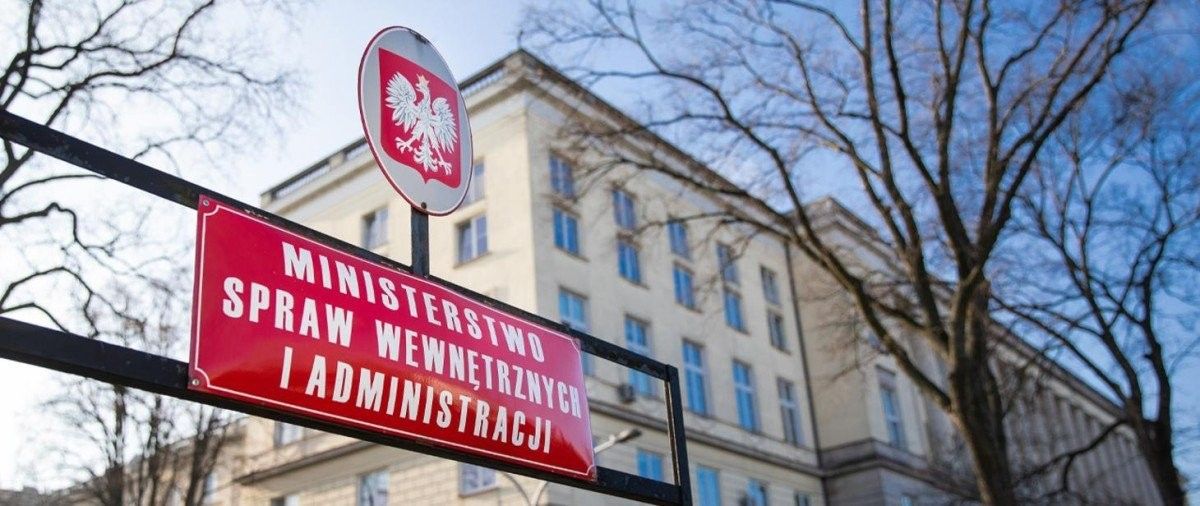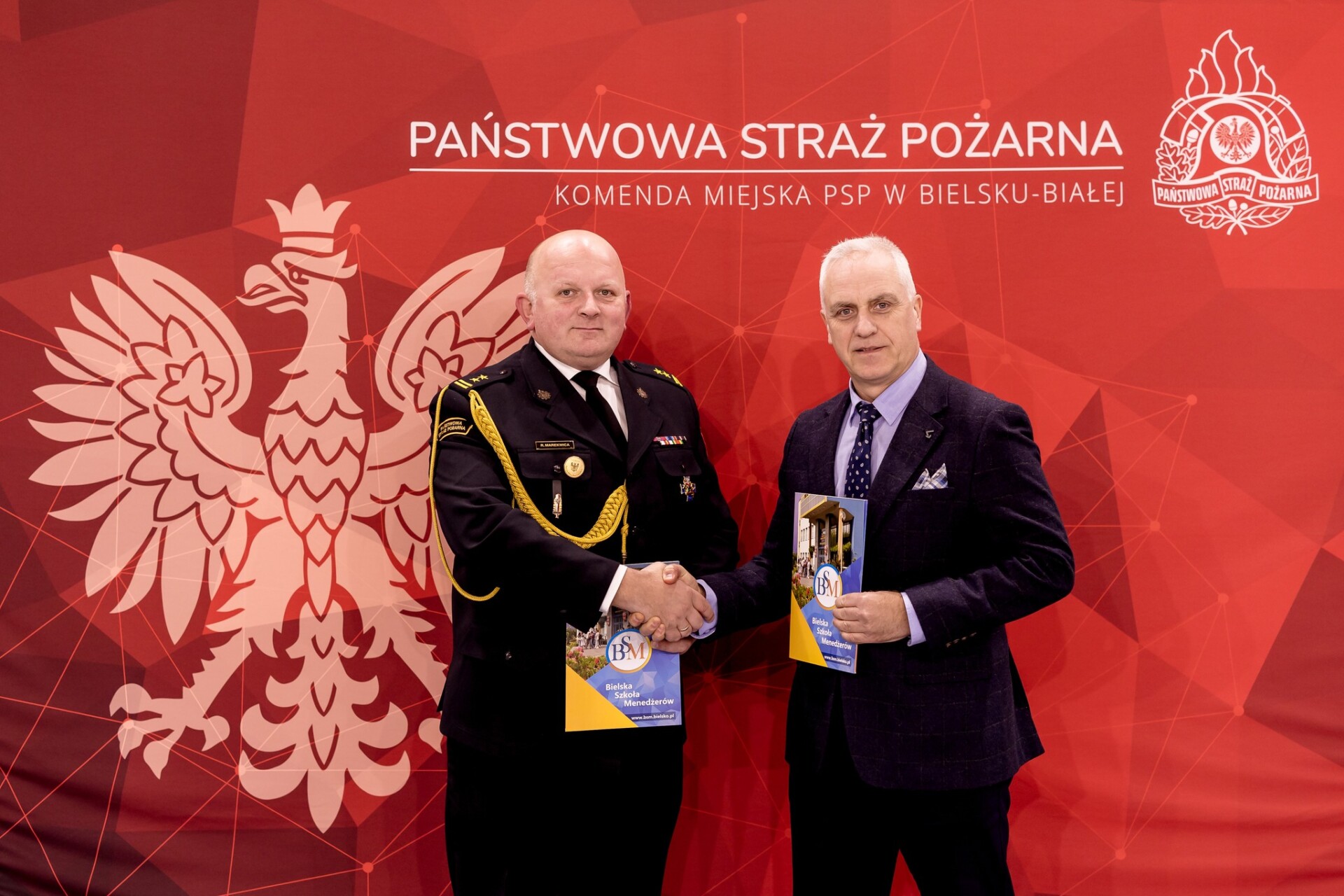Extortion of service as a criminal offence or offence
Assuming that service This production of non-production economical activity, consisting of actions to supply circumstantial benefits or to meet needs, may constitute:
- a criminal offence pursuant to Article 286(1) of the Criminal Code, which states that who, in order to get a property benefit, brings another individual to an adverse regulation with his own or another property by misleading him or by exploiting an mistake or inability to reasonably realize the action taken shall be subject to imprisonment from 6 months to 8 years.
or:
- a violation of Article 121(2) of the Code of Offence, which states that who, without the intention to pay a fee for a meal or drink in a collective caterer, is to pass a means of transport belonging to an undertaking which does not have the financial penalties laid down in the tariff, admission to an artistic, amusement or athletics event, the operation of a vending device or another akin benefit which he knows is to be paid shall be subject to detention, regulation of liberty or fine,
or:
- a violation of Article 121(1) of the Code of Offence, stating that who, despite failing to pay twice the fine imposed on him by the tariff, for the 3rd time in a year without the intention to pay the work is to defraud by rail or another means of transport, is subject to detention, regulation of liberty or fine.
Extortion of criminal service
According to the case-law, examples of extortion of a criminal service are:
- failure to pay for the transport of goods (yes: Court of Appeal in Lublin in judgement of 19 March 2013, Ref. Act II AKa 27/13)
- no payment for teeth whitening with anaesthesia (yes: Torun territory Court of 23 November 2021, Ref. Act II K 591/20)
- non-compliance with the work under the assignment agreement — transfer of the enforceable debt (yes: Court of Appeal in Warsaw in its judgement of 12 June 2013, Ref. Act II AKa 164/13)
- failure to comply with the work to reimburse the price for the sale of the property contract (yes: Court of Appeal in Warsaw in its judgement of 12 June 2013, Ref. Act II AKa 164/13)
- the conclusion of a telecommunication service contract whereby the offender received a mobile telephone erstwhile misleading the company's worker with respect to self-identity data, intent and ability to comply with the undertaking (yes: Kalisz territory Court of 7 May 2019, Ref. Act II K 1191/17)
Extortion of an offence
According to the case-law, examples of extortion of criminal services are:
- no payment for food or drink in the restaurant or bar
- no rail toll or another means of transport (third time during the year after failing to pay twice the fine imposed),
- travel by a means of transport belonging to an undertaking which does not have the financial penalties laid down in the tariff
- no payment for admission to an artistic, amusement or sports event,
- no payment for another akin paid services,
- no taxi fare (yes: The territory Court of Olsztyn in its judgement of 9 December 2016 No. IX In 2721/16)
- no fee paid for paid tv service (yes: District Court in Bydgoszcz in judgement of 28 November 2013, Ref. act. IV Ka 943/13)
- no payment for hotel stay (The territory Court of Konin in its judgement of 3 August 2018, No. II Ka 170/18).
Distinguishing of the offence of extorting a service from an offence
Crime demarcation criterion fraud And misdemeanor is the existence of an agreement between the parties determining that the object of the action is property within the meaning of Article 286(1) of the Code and not a benefit referred to in Article 121(2) of the Code. (yes: T. Grzegorczyk in: Code of Offence. Commentary, LEX 2013, comment on Article 121, thesis 2; judgement of the Gdańsk territory Court of 29 March 2012, act No XIII Ka 132/12).
Service as Property
The view that the extortion of a given service may constitute a criminal offence is based on the analysis of the word ‘proprietary’ in Article 286(1). Well, according to jurisprudence and legal doctrine, the word property means the full property situation, covering all rights, both in kind and in liability, and an adverse regulation may be imposed either by the actual harm or by the failure of the benefit due (yes: orders of the ultimate Court of 15 June 2007, I NAP 13/07).
Property benefit
The offence of fraud (service extortion*) is simply a deliberate offence, which is included in the alleged purposeful variety of directional crimes. The behaviour of the perpetrator is aimed at achieving the asset benefit which is the nonsubjective of the action; it may consist in expanding assets or reducing liabilities. Under the term, property benefits can besides be understood as current or future acquisition of property, expected asset benefits, general improvement of the asset situation (yes: judgement of the ultimate Court of 5 June 2012 II KK 287/11 – Biul Prok. 2012/7/16; justification of the ultimate Court judgement of 30 August 2000 V KKN 267/00 OSNKW 9-10/2000, p. 85).
Action of the perpetrator to extort the service
Elements of the fraud offences in question must be covered by the consciousness of the offender who, in order to get an undue advantage, acts knowingly in a certain way, which consequently leads to the conclusion that he is acting with a direct directional intent, including the intent and method of action (so: ultimate Court judgement of 20 February 1974 V KR 49/74 – OSNKW 7/71974, p. 138).
Therefore, for the designation that we are being misled, it is adequate to have any action which may give emergence to a misconception of the reality of the individual in charge of the property; it is possible to mislead by any means and methods which will lead to a discrepancy between the consciousness of the individual in charge of the property (the service provider*) and the actual state of affairs (yes: ultimate Court judgement of 10 March 2004 II KK 381/03 – OSNwSK 2004/5523).
In the event of a fraud offence, the events at the time of the offence will be peculiarly crucial to find the perpetrator's intent. However, later events will aid to establish this intention. In the event that, for example, a individual who has concluded a contract for the provision of paid tv services does not pay any invoice issued by the operator for the services provided to him or her, and that he or she does not have any reaction to the operator's monity on the resulting late payment, This will be confirmed by the existence of a bad intention in the form of extortion of services. (Yes: judgement of the Court of Appeal in Krakow of 12 November 1998, ref. Act II AKa 199/98, KZS 1998, No 12, item 33).
The offender’s promises to pay for the service
Where the perpetrator of the extortion of a service disputes that his intention is to extort a service from the victim, account shall be taken of all the circumstances on the basis of which it is possible to draw conclusions on the reality of the fulfilment of the promises made by the perpetrator of the property, and in particular:
- financial possibilities,
- the scale of the obligations to be borne by the offender in favour of the property manager
- his/her relation to the property manager due to the expiry of payment deadlines
(yes: judgement of the Court of Appeal in Katowice of 10 December 2009, No. II AKa 361/2009, Lex No. 574478; by analogy: judgement of SN of 19 April 2005, WA 8/05, OSNwSK 2005/1794).
To guarantee that the perpetrator of the extortion of the service, erstwhile purchasing the goods, assumes repayment of obligations to suppliers and does not act with the intent to harm anyone, must not exclude his criminal liability.
The sign of fraud resulting from the offence under Article 286(1) kk is besides filled in and where the offender, acting in the manner described in that provision, leads another individual to the regulation in an adverse way, for example, due to misleading transactions involving a higher degree of hazard than the 1 which exists in the belief of the victim or exposes the victim to the request to recover or enforce the claim (yes: The territory Court in Wąbrzeźno in its judgement of 24 February 2017 in Case II K 286/15 ).
Possibility to verify the assurances of the perpetrator of extortion
The fact that the victim was able to verify the actual state of affairs, that he was insecure or unfavorable does not affect the legal assessment of the perpetrator (yes: Judgment of the Court of Appeal of 12 June 2013 in Case II AKa 164/13).
Extortion of the service and harm arose in the assets of the service provider
In the light of the position of case law and judicature, an adverse regulation of property does not even gotta trust on a real failure in a material sense. specified a regulation is any activity of a circumstantial nature relating to all property rights and obligations affecting the situation of the victim, which results in a general deterioration of the situation of the victim, including a simplification in the chance of satisfying claims in the future (such as the ultimate Court judgement of 10 June 2010, IV KK 1/10, Lex No. 590282; the order of the SN of 3 April 2012 , V KK 451/11, Lex No. 1163989; judgement of 6 May 2010, II KK 256/09, Lex No. 583778).
Proof of extortion of service
In the context of the offence of extortion of the service, it should be demonstrated on the basis of the evidence gathered that the offender included a direct and targeted intent not only to mislead (objection) and to act in order to get a property benefit, but besides that, at the time of the conclusion of the contract, it included a direct directional intent that the counterparty was to misdirect the property.
Even the uncovering that the perpetrator had presented false circumstances to the individual in charge is not adequate to find that he acted in the intent of fraud. It is essential to establish that He was aware of the false information and that he utilized it to bring to an adverse regulation assets to accomplish the property benefit (Case of the Court of Appeal in Katowice of 17 August 2000 No. II AKa 168/00 OSA 78/2001, p. 51).
If, on the another hand, in the course of the execution of the contract there are circumstances previously unforeseen by the perpetrator which prevent the performance of the contract, there is no fraud.
Repeal of the order for payment as an aggravating circumstance
Persistent evasion of payments, even after the order for payment has been approved, should be considered as aggravating circumstances with respect to the punishment (yes: The territory Court of Toruń of 27 November 2014 in case number V GNc 3355/14).
Important elements showing intent to extort the service
The behaviour of the perpetrator by trying to refuse to present the paper and to complete the essential documentation and not to include the PESEL number shows that the perpetrator had no intention of paying the payment at the time of the service. This led to confusion about the intention to comply with the work (yes: The territory Court of Toruń in its judgement of 23 November 2021, No. II K 591/20)
Extortion of service as an offence (chamber)
Pursuant to Article 121(1) of the Code of Offence, detention, regulation of liberty or fine shall be subject to the following:
- food or drink in a collective catering establishment,
- transit of a means of transport belonging to an undertaking which does not have the financial penalties laid down in the tariff,
- admission to an artistic, amusement or sporting event,
- automatic operation
- another akin benefit that he knows is payable.
So different forms of raving, regardless of the value of the fraudulent serviceThey're just a misdemeanor.
If this offence is committed, the work to pay the equivalent of the fraudulent service may be imposed (§ 3).
The doctrine and jurisprudence indicate that scamming is simply a peculiar kind of deception, which is characterised by an action involving the exploitation of a fraudulently created situation. The object of the scamming is the property of others, and the perpetrator is aware that the benefit is usually paid immediately or erstwhile he wishes to usage it.
In the offence of fraud, the offender exploits the unawareness of the victim, and the offender prefers to usage the service (the victim's) free of charge, knowing that the service is paid (yes: District Court of Konin in judgement of 3 August 2018, Ref. Act II Ka 170/18).
Extortion of food or drink in a restaurant
In the event of an extortion of food or drink, the regulation of Article 121(1) of the Code of Offence refers to an extortion carried out in a mass caterer, i.e. in a restaurant, bar, canteen, cafe.
The word "collective catering facility" should be understood broadly, not necessarily as classical form as mentioned above, but also, for example, food kiosk serving food or drink, open to people passing through.
On the another hand, it is not a collective caterer, a form of sale grown by street vendors without a permanent space. Standing on a public square, pavement or market, occasional food and beverage sellers do not fall within the concept of a mass caterer. So besides extortion of a meal or drink from an accidental individual or in someone's home or flat does not constitute an offence despite the agreed price of these products (yes: Code of Offences. Comment. Szwarczyk Maciej, Michalska-Warias Aneta, Bojarski Tadeusz, Piórkowska-Flieger Joanna Author comment on part.
Extortion of hairdressing or cosmetic services
The ultimate Court, in its resolution of 24 January 1973, No. VI of KZP 69/72, held that “the similarity of circumstantial benefits can be considered due to their different characteristics from different points of view. There is no uncertainty that e.g. extorting a service in a barbershop constitutes a violation of Article 121(2) of the Code, although this service differs in its content from services provided in the form of artistic, amusement or sports events or from services provided by mass caterers.
The similarity of this service (service) to another services, for example those referred to in Article 121(2) above, is determined not so much by the similarity of the content, but by the applicant's awareness that the service is payable, specified as those mentioned for example in the provision in question, i.e. as a rule, without hold – either erstwhile expressing his willingness to usage the service, e.g. erstwhile buying a ticket for a party, or after utilizing this service, e.g. after consuming food.
Connection of the tv receiver to the collective receiver system
In its order of 29 September 2004, the ultimate Court held that a paid service, consisting of the connection of a tv receiver to a collective network (cable network) and the provision of programmes would be considered a fraud (yes: Adam Bashkowski. Glos to the order of the ultimate Court of 29 September 2004, ref. I KZP 2104 (concerning the explanation of Art. 121 §2 sq.); in: Public Prosecutor's Office and Law 7–8, 2006).
The fee for access to the cable network is simply a charge for making available a package of radio and tv programmes, or another services, of adequate quality (both method and substantive). In this way, you can see a certain resemblance to the admission to an artistic, sporting and amusement event in Article 121(2). The form of access to the service remains irrelevant (yes: Adam Bashkowski. Glos to the order of the ultimate Court of 29 September 2004, ref. I KZP 2104 (for the explanation of Art. 121 §2 sq.); in: Public Prosecutor's Office and Law 7–8, 2006).
Extortion by taxi
The ultimate Court expressed the view that the extortion of a private taxi is simply a violation of Article 121(2) of the Rules of Procedure regardless of the amount of harm caused by that act (yes: ultimate Court judgement of 24 January 1973, VI KZP 69/72, OSNKW 1973, No. 4, item 42).
Automation
The doctrine expresses doubts as to how to specify an "automat" and whether it besides covers telecommunications equipment in the form of a "switchbox". The concept of an "automate" is simply a very broad word and it means a device that performs the full cycle of work without human participation.
Since the legislator did not specify what kind of machines it was meant to be, it was so appropriate to recognise that its intention was to cover the scope of the above/in the concept of the widest ellipse of specified devices. The concept of "automate" cannot be attributed to a peculiar kind or kind of device. Thus, within the meaning of the provision of Article 121(2) of the Law, there is besides a telecommunications device in the form of the alleged "distributive box" (so-called: Kotowski Wojciech, in: Code of Offences. Commentary, Oficina 2009, comment on Art. 121, Thesis 8).
Extortion of another insignificant services
The legislator in Article 121 § 2 kv uses the verb ‘extortion’ indicates the usage of this provision only in situations where tiny services are usually of a one-off nature, which are paid in advance (the alleged accession agreement) or immediately after the service is provided (yes: District Court of Olsztyn in judgement of 22 November 2017, Ref. Act IX In 3072/17).
The ultimate Court pointed out that the word ‘other akin evidence known to be paid’ does not mean the identity of comparable objects, but that they are considered to be converging or almost identical (yes: Adam Bashkowski. Glos to the order of the ultimate Court of 29 September 2004, ref. I KZP 2104 (concerning the explanation of Art. 121 §2 sq.); in: Public Prosecutor's Office and Law 7–8, 2006).
No payment for hotel stay
In the resolution of the ultimate Court of 23 November 1972, act VI of KZP 49/72 expressed the view that the word ‘defrauds another akin benefit, which he knows is paid’ in Article 121(2) of the Code of Criminals does not include extorting an flat in a hotel without intent to pay a debt. The criticism of this resolution was expressed in a comment under ed. Marka Mozgawa (Code of Offences. Commentary, Issue II, published: Lex 2009).
However, in the judgement of the territory Court of Konin of 3 August 2018, the mention of Act II Ka 170/18, the above view of the ultimate Court was presented comparatively long ago, in another systemic and economical realities, where the difference between the extortion of food, transportation or admission to an artistic, amusement or sporting event and the provision of hotel accommodation was easy grasped due to the complexity of the service/service as well as its value.
Nowadays, it is not uncommon that admission to the event is connected not only with higher costs than those resulting from staying at the hotel, but besides with another services that make the offer attractive, specified as providing the associate with food, a certain place in the audience/at the table, renting him a costume or another benefits. In this context, the fact that the provision of a hotel accommodation service involves a number of circumstantial elements, including the acceptance, in principle, by the recipient of civilian liability for peaceable things, in the judgement of the territory Court itself does not prejudge that there is no similarity between that provision and, for example, the provision of participation in the event.
Please note, however, whether the benefit was a one-time benefit and whether it should be paid by way of payment of the price (in advance or at the latest immediately after the benefit has been paid.
Extortion of transport services for goods
Court of Appeal in Lublin in judgement of 19 March 2013 Ref. Act II AKa 27/13 stated that since, according to the common, both judicature and literature, the view that the object of the protection of an offence referred to in Article 286(1) of the Code is property and, in the broad sense of the word, it cannot be effectively defended that the failure to pay for the performance of the transport service of goods carried out as a consequence of the conclusion of the contract does not constitute an adverse regulation of property within the meaning of Article 286(1) of the Law, where this is the consequence of the fraudulent conduct by the perpetrator, the exploitation of an mistake or the inability to take the action undertaken by the individual to whom those conduct is directed.
The Court of Appeal stressed that this was due to expenditure on transport itself (e.g. fuel), pay of wages for drivers, payment of public liabilities, specified as VAT. After all, these expenditures, in fact a Regulation of property, were not compensated in any way. The Court of First Instance noted that the majority of the victims were household businesses with liabilities to banks, specified as the leasing of means of transport, and the failure by the offender to pay the debts due to transport contracts concluded, had to entail serious perturbations for the victims.







